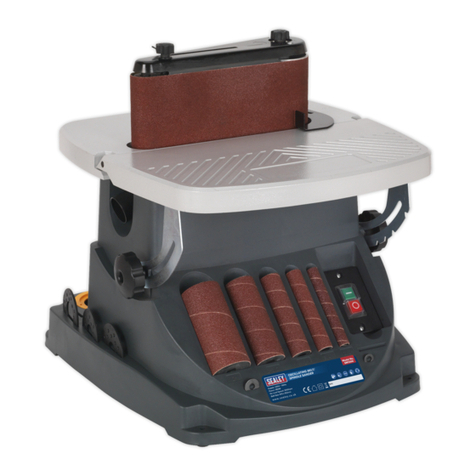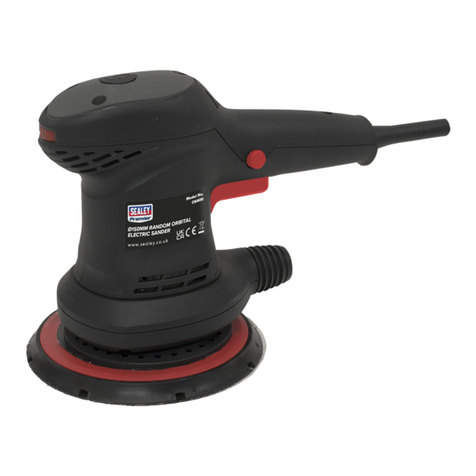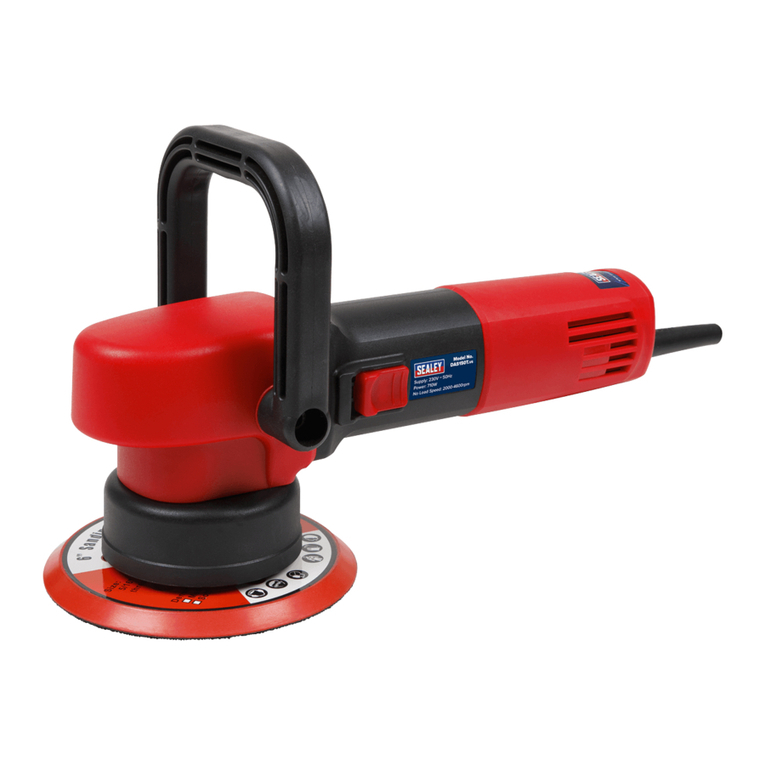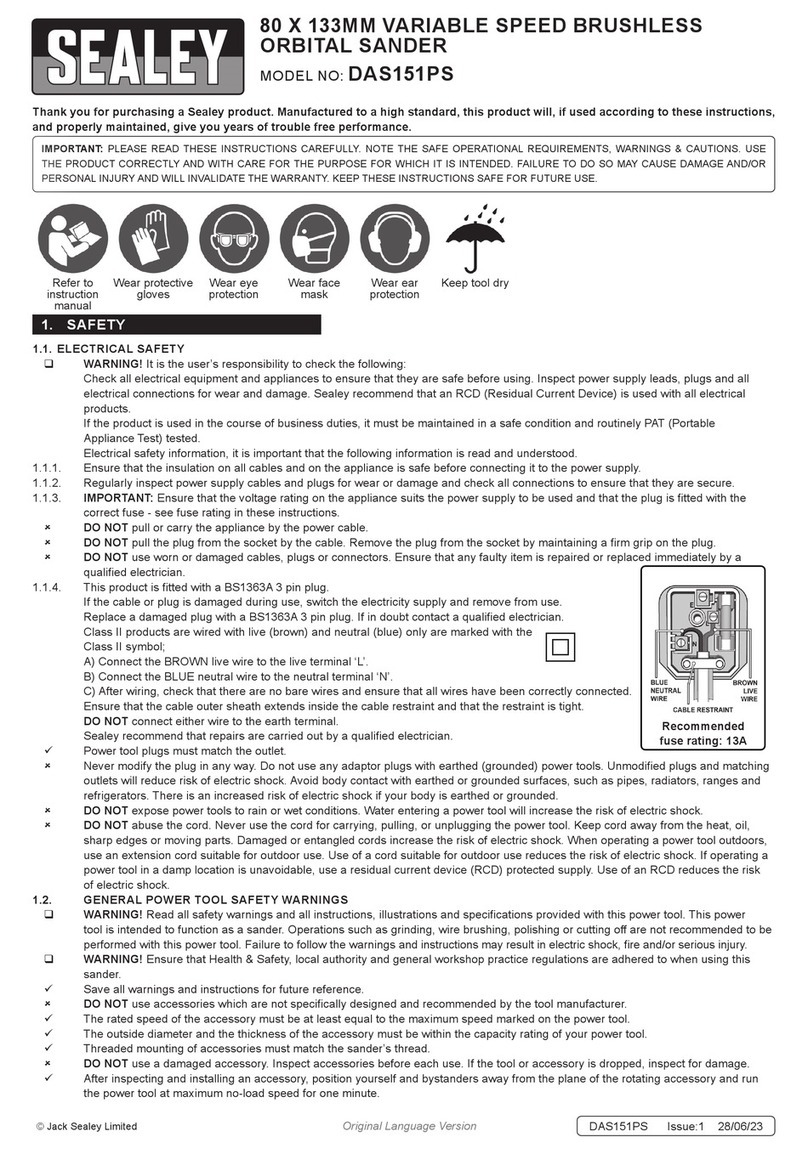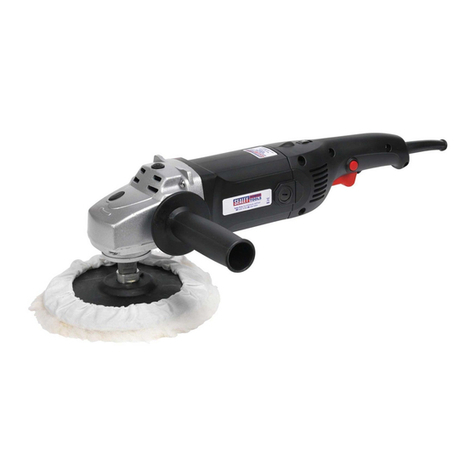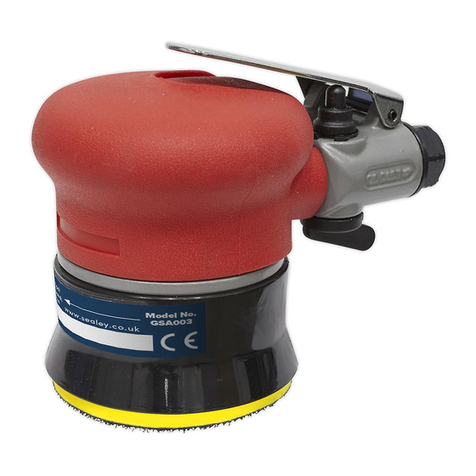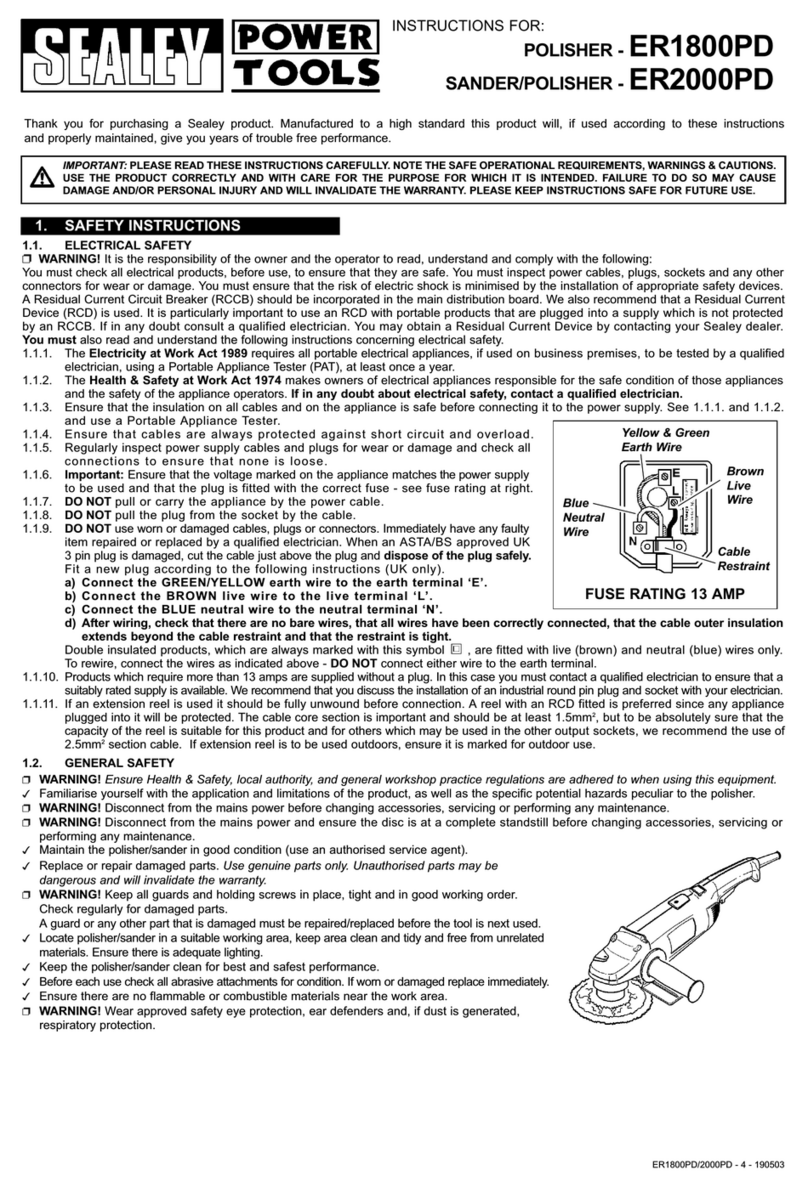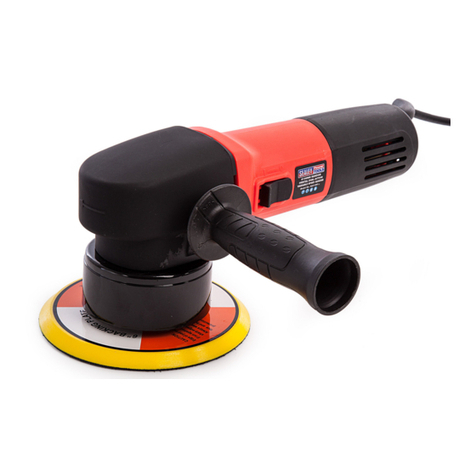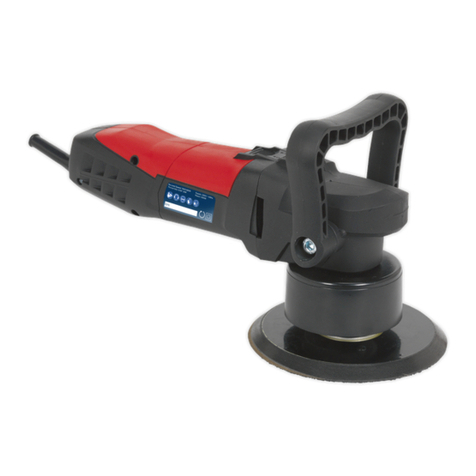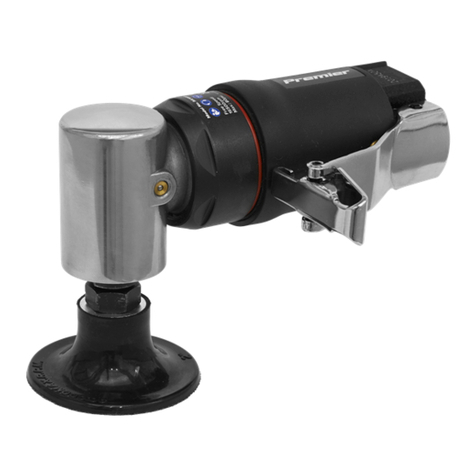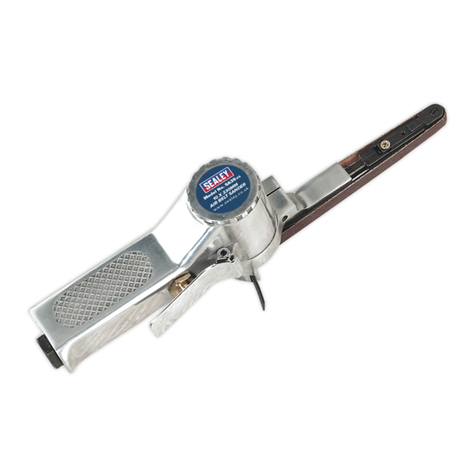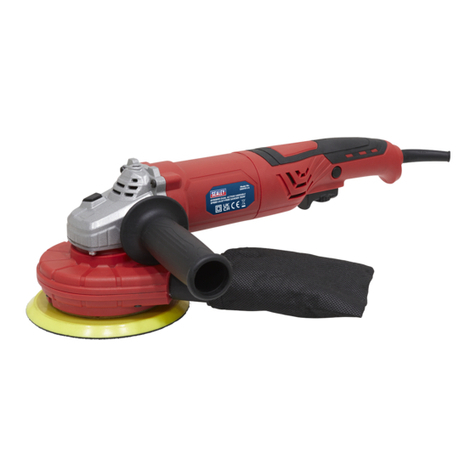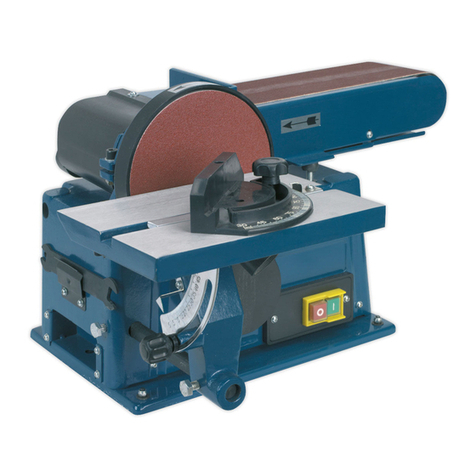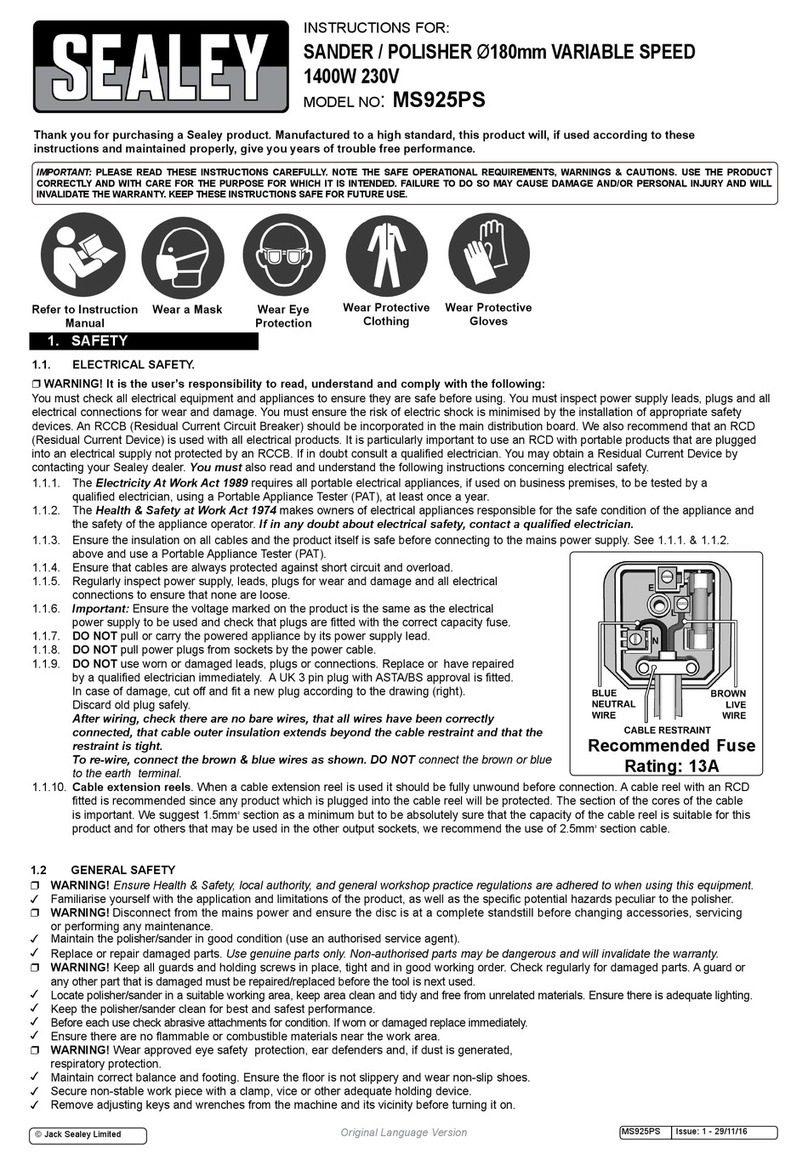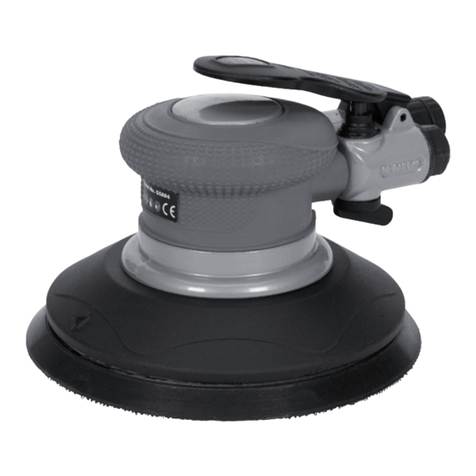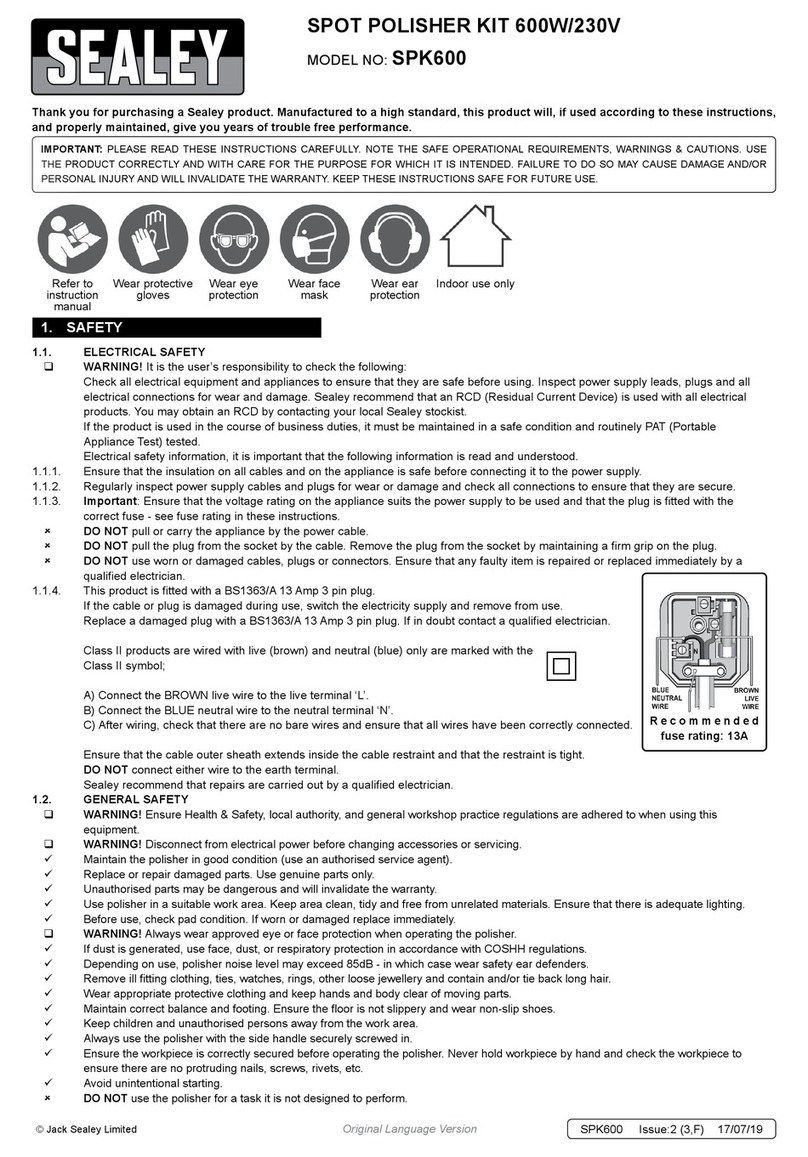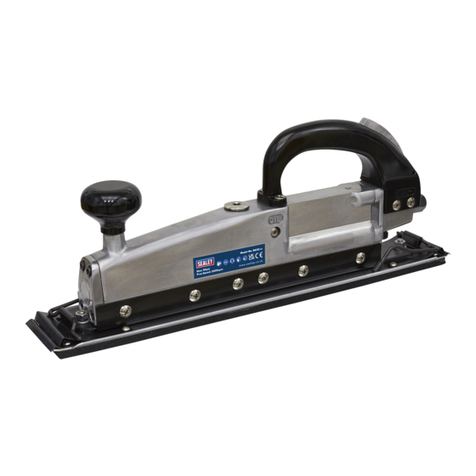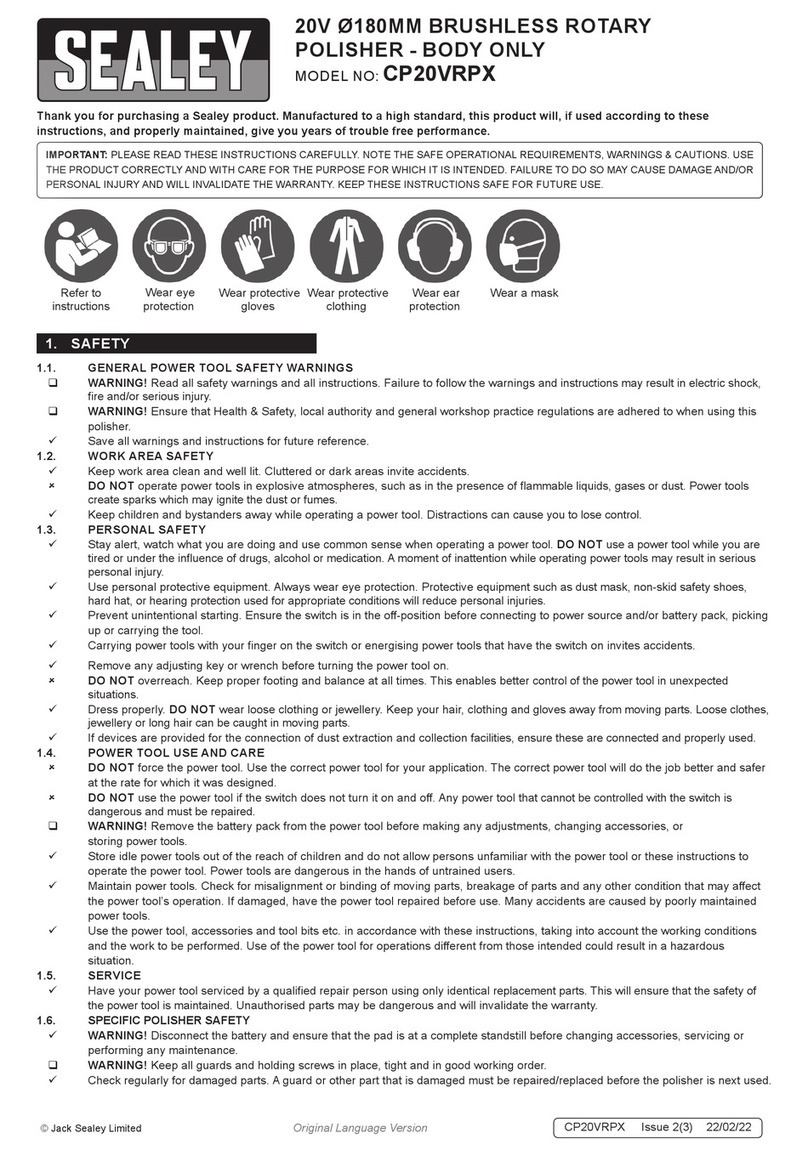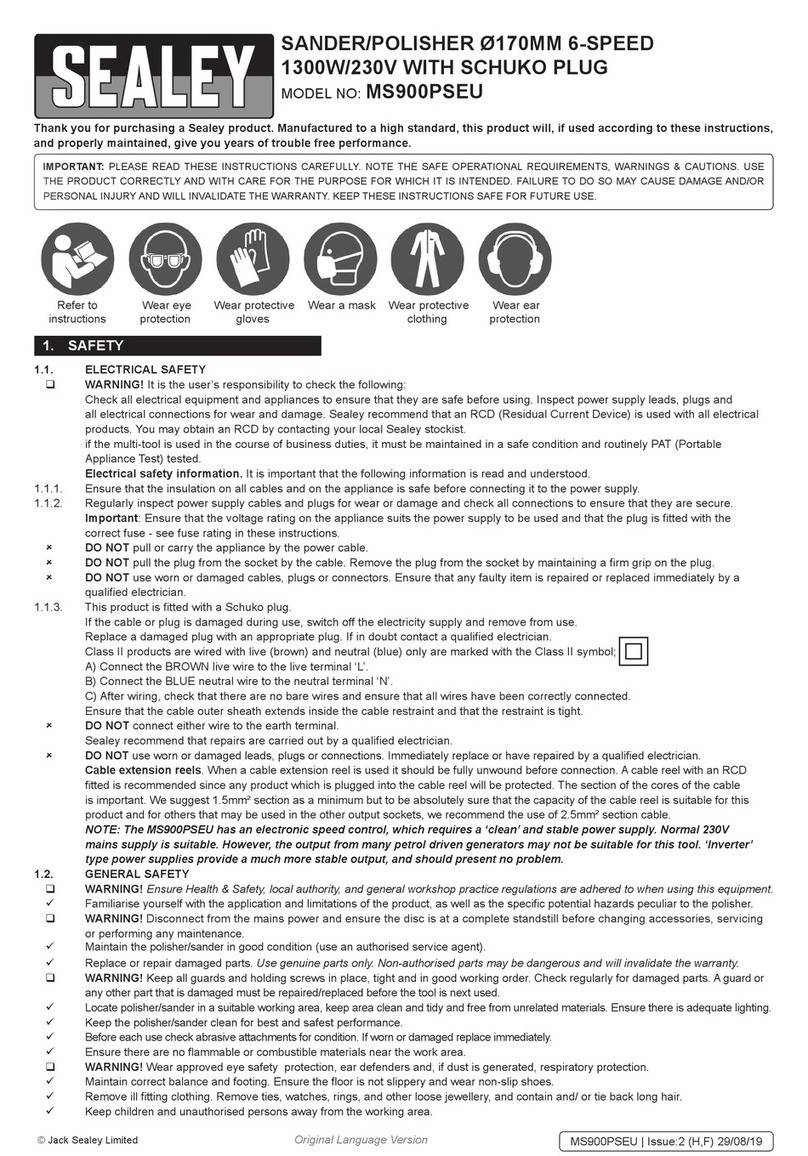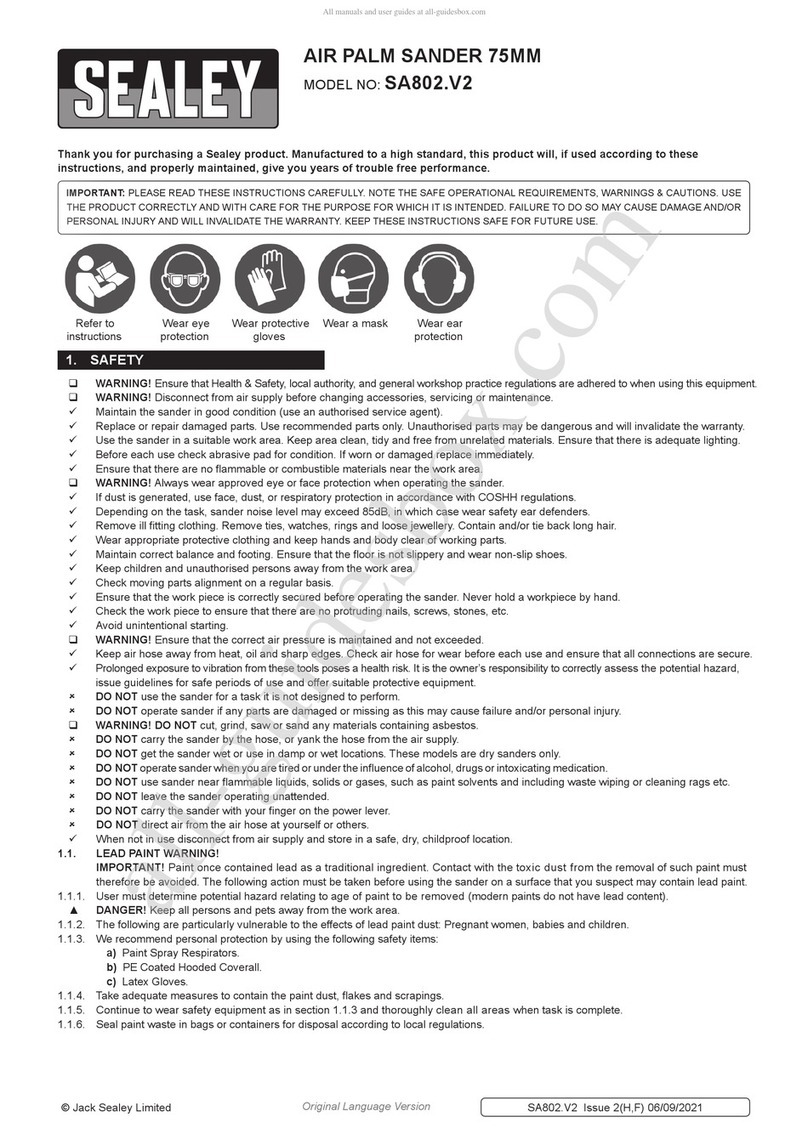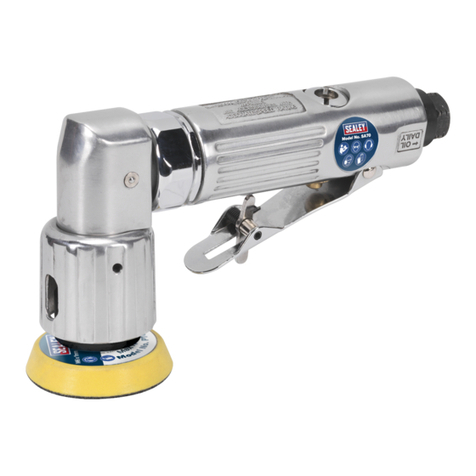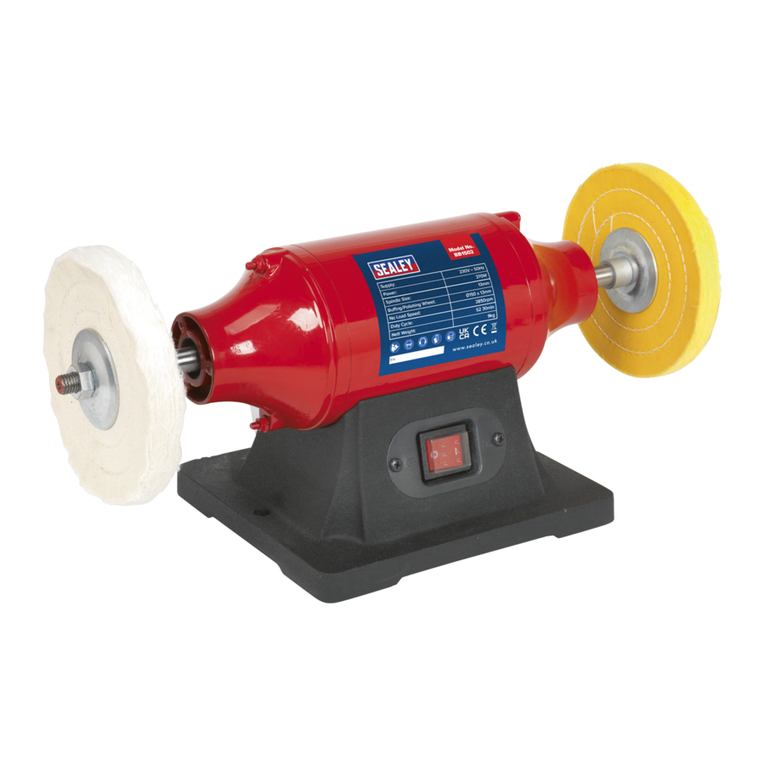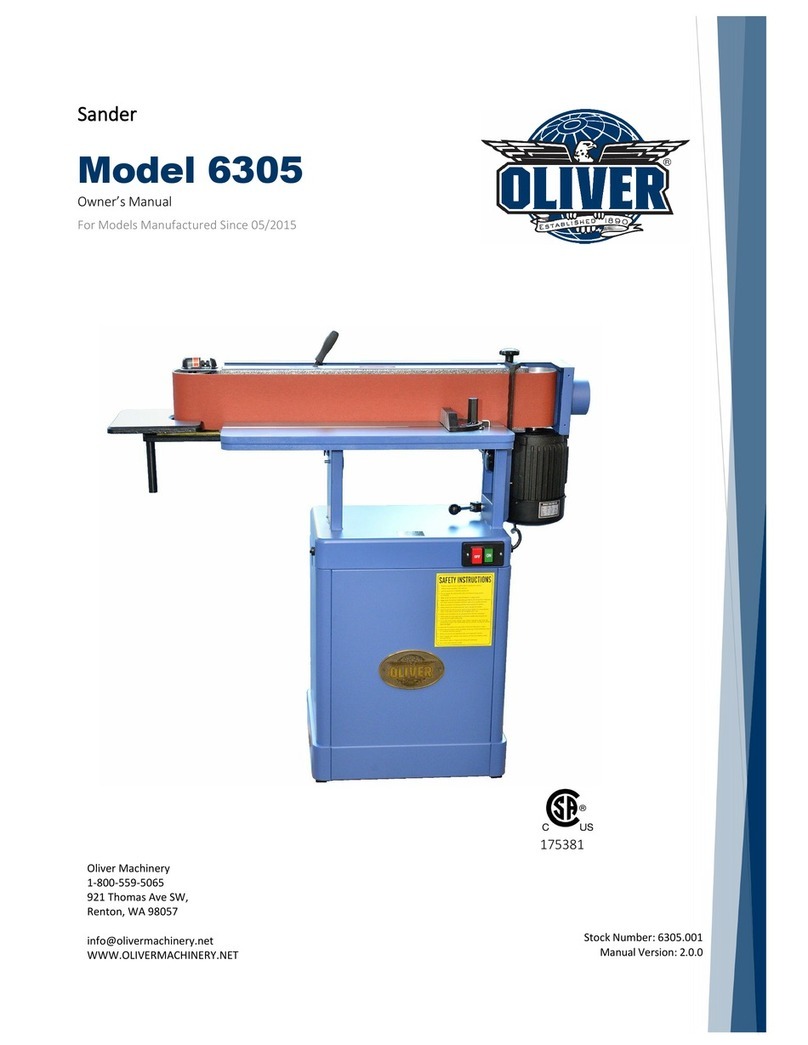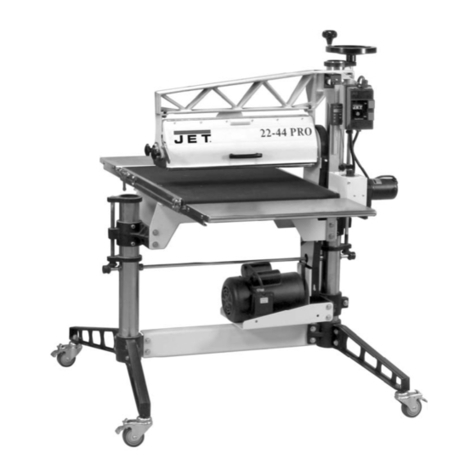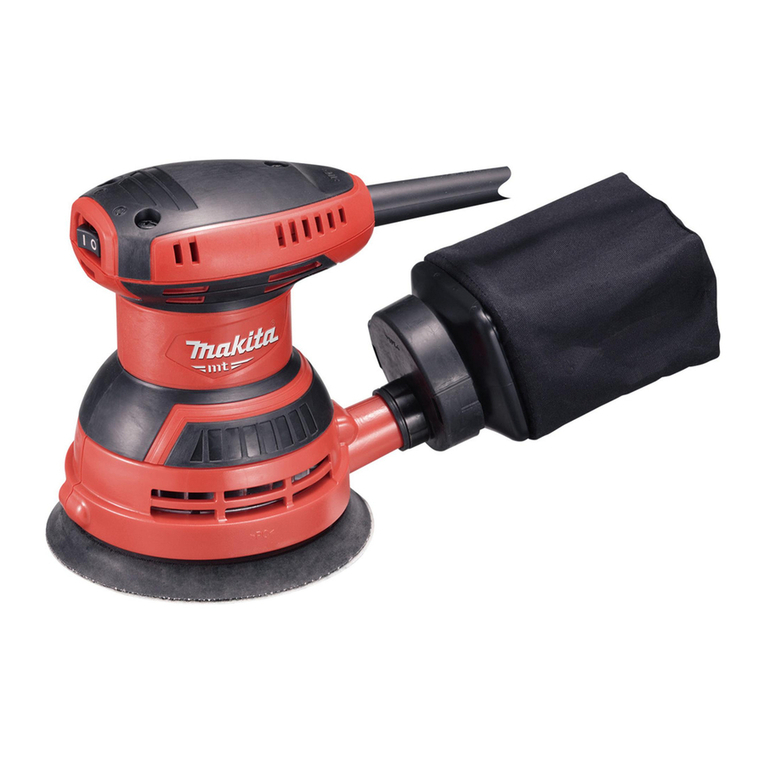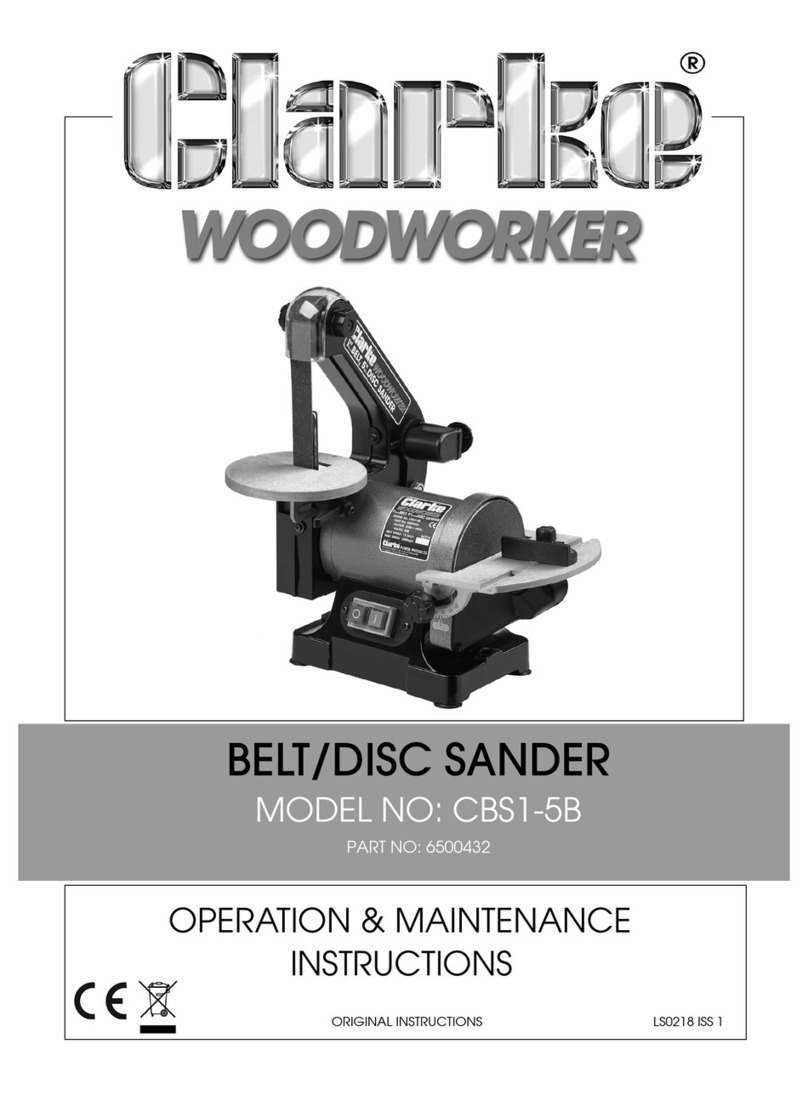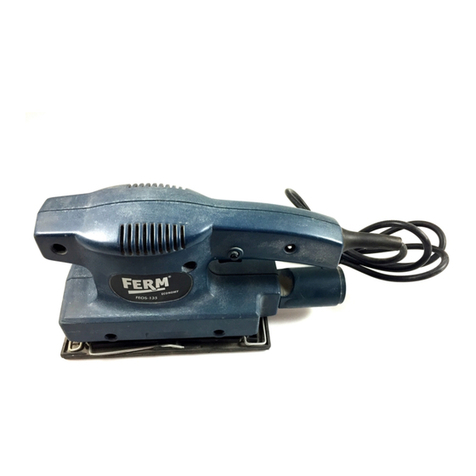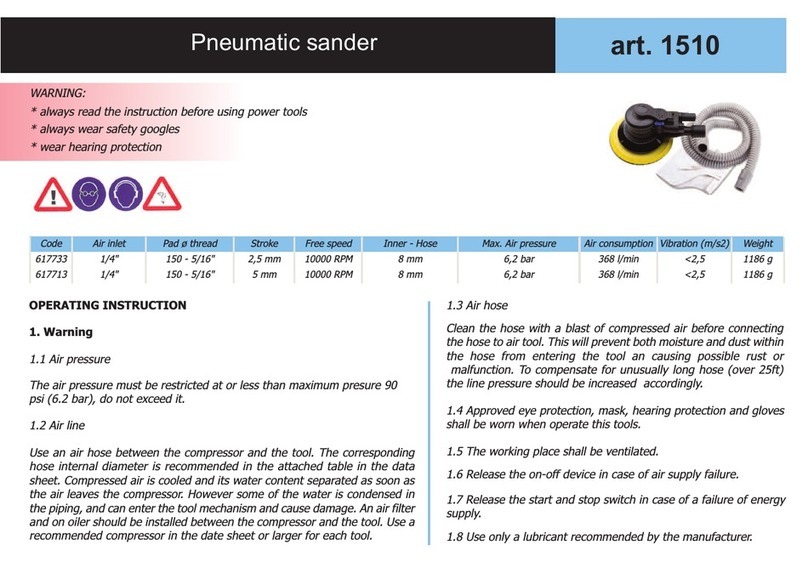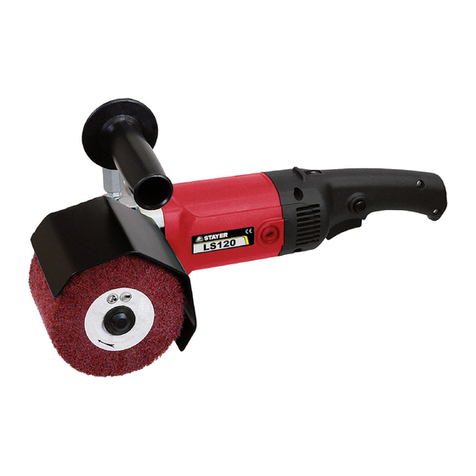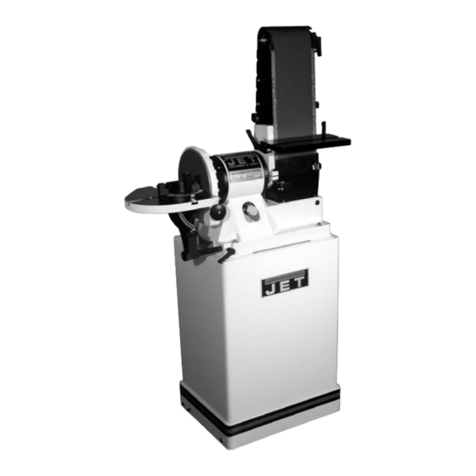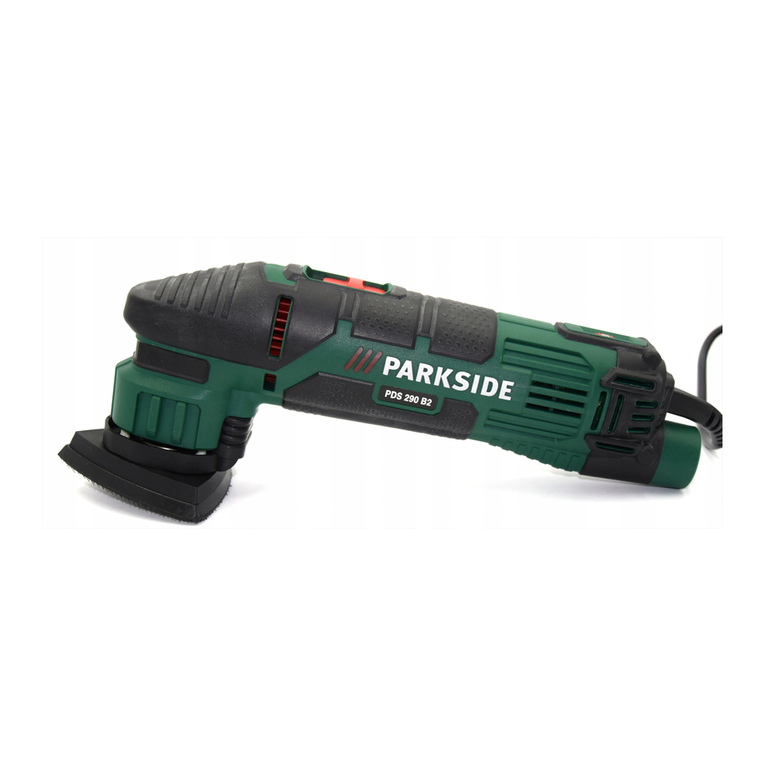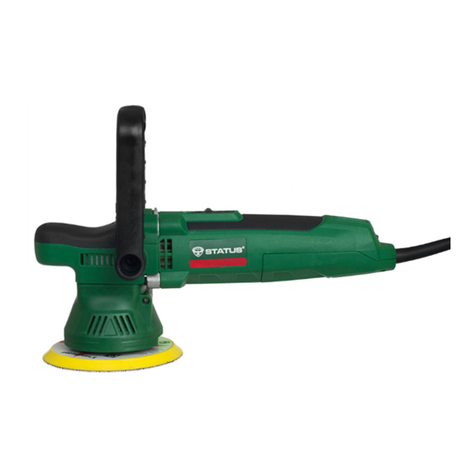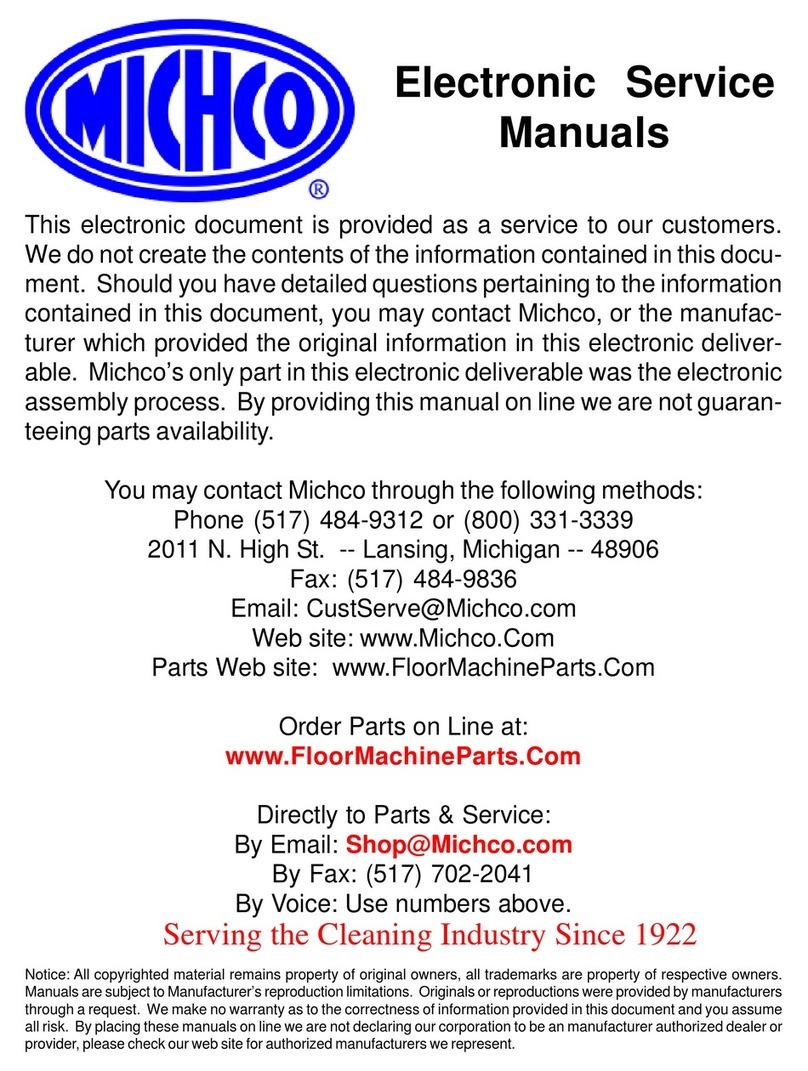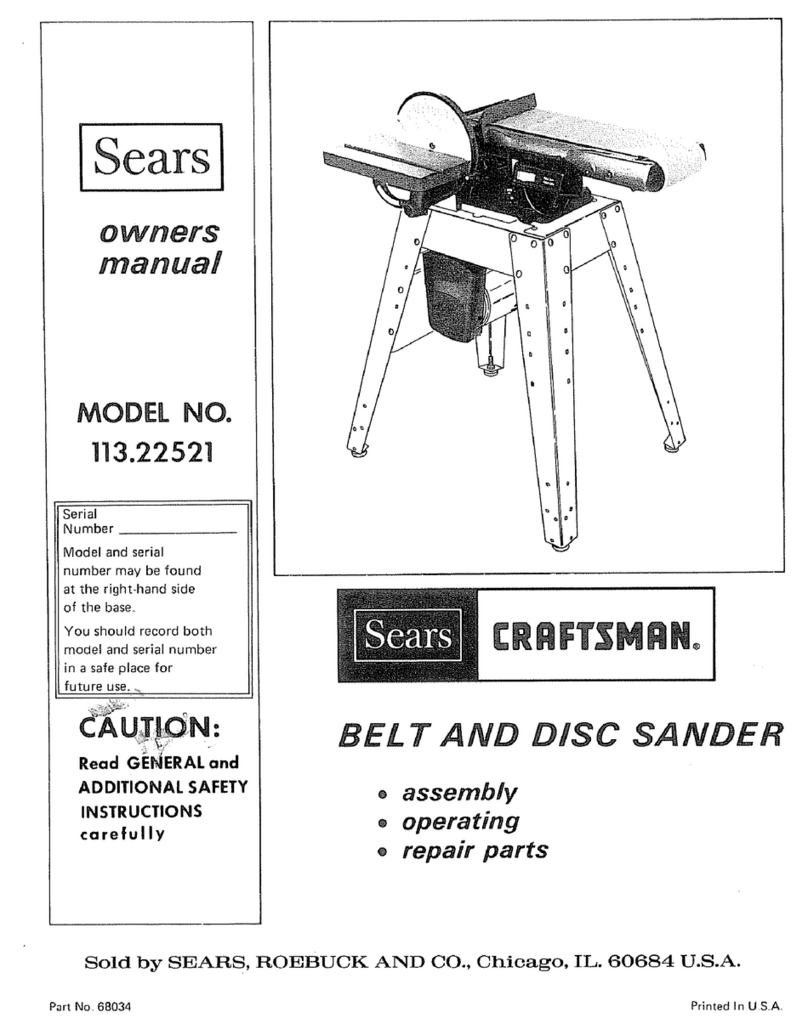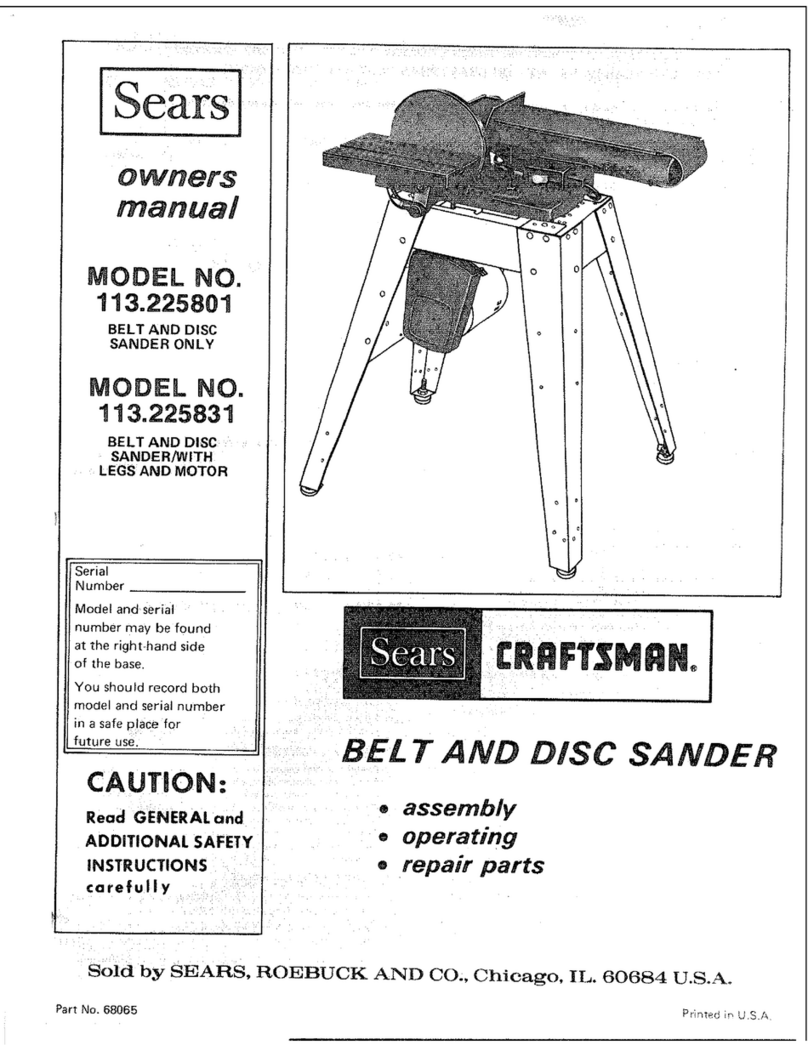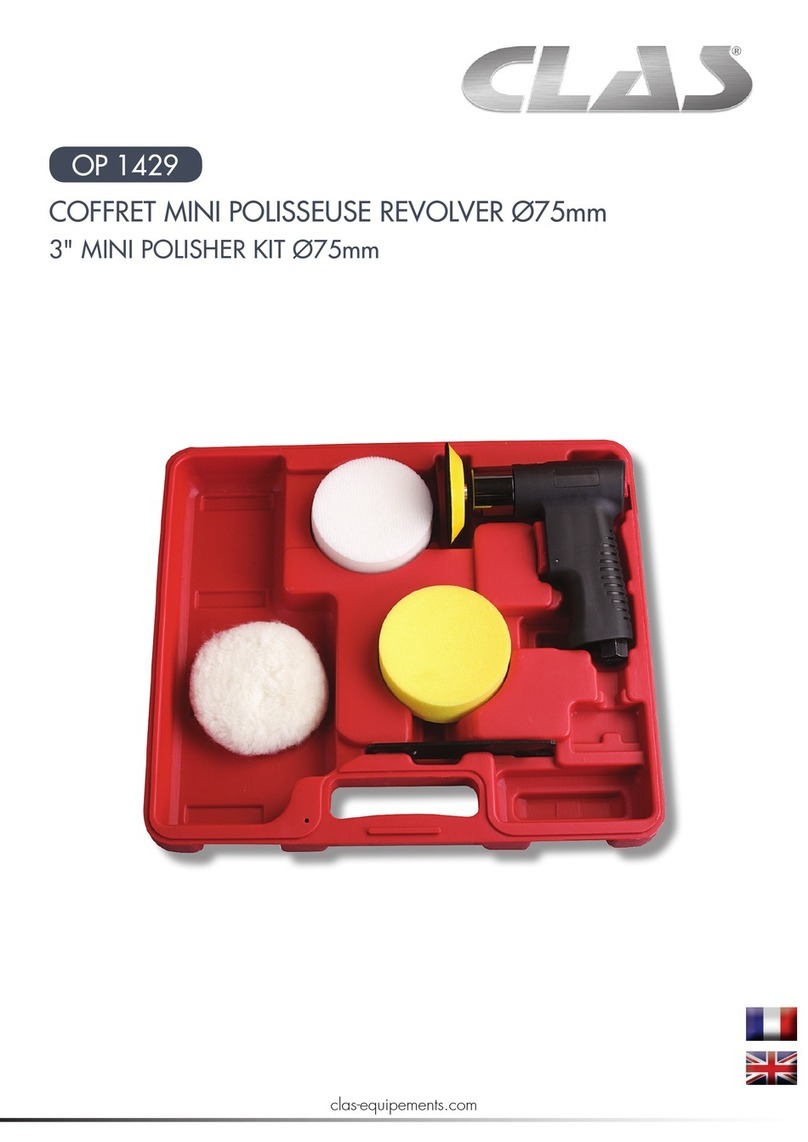
AIR BELT SANDER
MODEL NO: S01046.V2
Thank you for purchasing a Sealey product. Manufactured to a high standard, this product will, if used according to these
instructions, and properly maintained, give you years of trouble free performance.
IMPORTANT: PLEASE READ THESE INSTRUCTIONS CAREFULLY. NOTE THE SAFE OPERATIONAL REQUIREMENTS, WARNINGS & CAUTIONS. USE
THE PRODUCT CORRECTLY AND WITH CARE FOR THE PURPOSE FOR WHICH IT IS INTENDED. FAILURE TO DO SO MAY CAUSE DAMAGEAND/OR
PERSONAL INJURY AND WILL INVALIDATE THE WARRANTY. KEEP THESE INSTRUCTIONS SAFE FOR FUTURE USE.
1. SAFETY
1.1. GENERAL SAFETY
WARNING! Ensure Health & Safety, local authority, and general workshop practice regulations are adhered to when using this equipment.
WARNING! Disconnect from air supply before changing accessories or servicing.
9Maintain the sander in good condition (use an authorised service agent).
9Replace or repair damaged parts. Use genuine parts only. Unauthorised parts may be dangerous and will invalidate the warranty.
9Use in suitable clean and tidy working area, free from unrelated materials and ensure there is adequate lighting.
9Before each use check abrasive belt for condition. If worn or damaged replace immediately.
9Use only the correct size and type of sanding belt with this sander.
9Ensure there are no flammable or combustible materials near the work area.
WARNING! Always wear approved eye or face and hand protection when operating the sander.
9Use face, dust, or respiratory protection in accordance with COSHH regulations.
9Depending on the task, sander noise level may exceed 85dB, in which case wear safety ear defenders.
9Remove ill fitting clothing. Remove ties, watches, rings, other loose jewellery and contain and/or tie back long hair.
9Wear appropriate protective clothing and keep hands and body clear of working parts.
9Maintain correct balance and footing. Ensure the floor is not slippery and wear non-slip shoes.
9Keep children and unauthorised persons away from the work area.
9Check moving parts alignment on a regular basis.
9Ensure work piece is secure before operating the sander. Never hold a work piece by hand.
9Check the work piece to ensure there are no protruding screws, bolts, nuts, nails, rivets, etc.
9Avoid unintentional starting.
WARNING! Ensure correct air pressure is maintained and not exceeded. Recommended pressure 70-90psi.
9Keep air hose away from heat, oil and sharp edges. Check air hose for wear before each use and ensure that all connections are secure.
9Prolonged exposure to vibration from this sander poses a health risk. It is the owner’s responsibility to correctly assess the potential
hazard and issue guidelines for safe periods of use and offer suitable protective equipment.
8DO NOT use the sander for a task it is not designed to perform.
8DO NOT operate sander if any parts are damaged or missing as this may cause failure and/or personal injury.
WARNING! DO NOT sand any materials containing asbestos.
8DO NOT carry the sander by the hose, or yank the hose from the air supply.
8DO NOT force, or apply heavy pressure to, the sander, let the sander do the work.
8DO NOT switch the sander on whilst the belt is in contact with the work piece.
8DO NOT operate sander when you are tired or under the influence of alcohol, drugs or intoxicating medication.
8DO NOT use sander where there are flammable liquids, solids or gases such as paint solvents and including waste wiping/cleaning rags etc.
8DO NOT carry the sander with your finger on the power lever.
8DO NOT direct air from the air hose at yourself or others.
9When not in use disconnect from air supply and store in a safe, dry, childproof location.
1.2. HAND ARM VIBRATION
WARNING! – RISK OF HAND ARM VIBRATION INJURY
This tool may cause Hand Arm Vibration Syndrome if its use is not managed adequately.
This tool is subject to the vibration testing section of the Machinery Directive 2006/42/EC.
This tool is to be operated in accordance with these instructions.
Measured vibration emission value (a): 1.1m/s²
Uncertainty value (k): 0.13m/s²
Please note that the application of the tool to a sole specialist task may produce a different average vibration emission. We recommend
that a specic evaluation of the vibration emission is conducted prior to commencing with a specialist task.
Ahealth and safety assessment by the user (or employer) will need to be carried out to determine the suitable duration of use for each tool.
NB: Stated Vibration Emission values are type-test values and are intended to be typical.
Whilst in use, the actual value will vary considerably from and depend on many factors.
Such factors include; the operator, the task and the inserted tool or consumable.
NB: ensure that the length of leader hoses is sufcient to allow unrestricted use, as this also helps to reduce vibration.
The state of maintenance of the tool itself is also an important factor, a poorly maintained tool will also increase the risk of Hand Arm
Vibration Syndrome.
Refer to
instructions Wear eye
protection Wear protective
gloves
Wear ear
protection Wear a mask Warning
S01046.V2 Issue 2 (H,1,2,3,F) 04/10/23
Original Language Version
© Jack Sealey Limited
